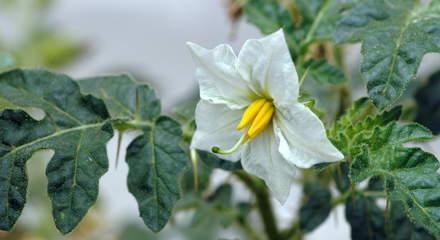
Bohs Lab
Research in the Bohs lab centers around plant systematics and phylogeny, with an emphasis on the taxonomy and evolutionary relationships of plants in the Solanaceae (tomato family). We use techniques ranging from morphological studies in the field, greenhouse, and herbarium to DNA sequencing in the laboratory to delimit species, investigate their evolutionary relationships, and learn about their biology. Fundamental knowledge of this kind is important in providing an evolutionary perspective to studies of character evolution, biogeography, and molecular biology and genomics.
We are concentrating on the tomato family because of its incredible taxonomic and morphological diversity, its tropical distribution, and its importance to humans. This family includes many species of economic importance, such as the tomato, potato, eggplant, chili pepper, petunia, and tobacco, as well as lesser-known species with potential uses as foods or medicines. Some solanaceous plants have been subjected to intensive human selection and several are known only in cultivation, allowing their use as systems to study the evolutionary interface between plants and people.
One major focus of our work is on the systematic and evolutionary relationships in Solanum, the largest genus in the Solanaceae. This genus, which includes some 1000 to 1500 species, is one of the largest genera of flowering plants and is economically important as a source of foods, ornamentals, and medicinally useful or poisonous alkaloids. Ongoing projects include construction of an overall phylogeny for Solanum and related genera using molecular and morphological characters and more detailed studies of several subgroups within the genus, some of which contain economically useful species.

